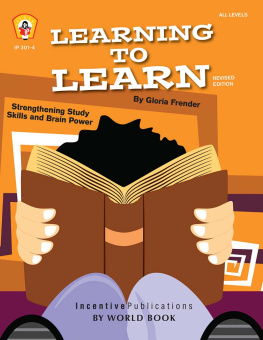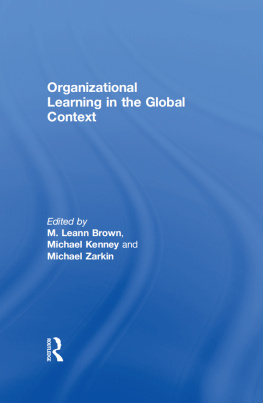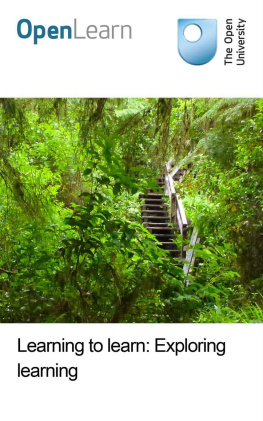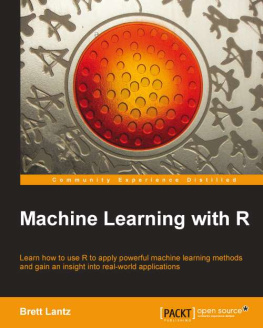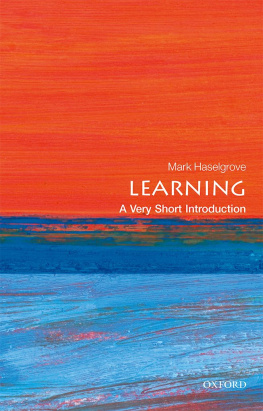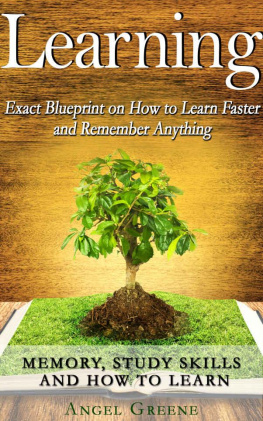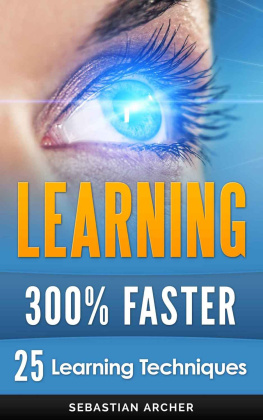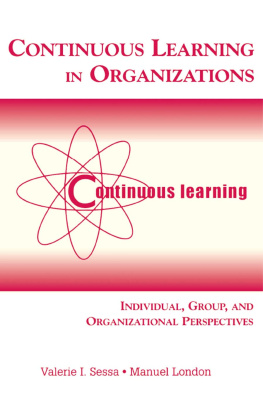BEYOND THE LEARNING ORGANISATION
In memory of my Grandfather, Rudolf and for Greta
Beyond the Learning Organisation
Paths of organisational learning in the East German context
MIKE GEPPERT
First published 2000 by Gower Publishing
Reissued 2018 by Routledge
2 Park Square, Milton Park, Abingdon, Oxon, OX14 4RN
711 Third Avenue, New York, NY 10017, USA
Routledge is an imprint of the Taylor & Francis Group, an informa business
Copyright Mike Geppert 2000
All rights reserved. No part of this book may be reprinted or reproduced or utilised in any form or by any electronic, mechanical, or other means, now known or hereafter invented, including photocopying and recording, or in any information storage or retrieval system, without permission in writing from the publishers.
Notice:
Product or corporate names may be trademarks or registered trademarks, and are used only for identification and explanation without intent to infringe.
Publishers Note
The publisher has gone to great lengths to ensure the quality of this reprint but points out that some imperfections in the original copies may be apparent.
Disclaimer
The publisher has made every effort to trace copyright holders and welcomes correspondence from those they have been unable to contact.
A Library of Congress record exists under LC control number: 00135333
ISBN 13: 978-1-138-73979-6 (hbk)
ISBN 13: 978-1-315-18404-3 (ebk)
Contents
BTF | Behavioural Theory of Firm |
CEO | Chief Executive Officer |
CIP | Continuous Improvement Process |
CMEA | Council for Mutual Economic Assistance |
GDR | German Democratic Republic |
OD | Organisational Development |
SDA | System Dynamics Approach |
THA | Treuhandanstalt (East German privatisation agency) |
TINA | There Is No Alternative |
TOA | Theory Of Actions |
TOP | Team Orientated Production |
TQM | Total Quality Management |
Interview code | Position |
Case study A: |
1a1 | Former Managing Director |
2a | Managing Director |
3a | Manager |
4a | Personnel Manager |
5a | Works Council |
6a | Manager |
7a | Manager |
8a | Manager |
9a | Engineering Manager |
10a | Team Leader |
Case study B: |
1b | Managing Director |
2b | Manager |
3b | Manager |
4b | Manager |
5b | Works Council |
Case study C: |
1c | Managing Director |
2c | Manager |
3c | Manager |
4c | Labourer |
Note
The figure after the interview-code counts which interview is being referred to with respective interview partner. Interview code la/2 (chapter 4, p. 69), for example, refers to the second interview with the former Managing Director of case study A.
When you read this study you will understand that its preparation, quite similar to the theme of our project, was an open and compound learning process. There are two points I would like to make.
On the one hand, I wanted to research a topic which has not given much consideration in conventional organisational learning discussions. Thus, it required a lot of encouragement from colleagues and friends. I first and foremost wish to thank Arndt Sorge (University of Groningen) who has supported me in my work through many discussions and his expert advice. Despite having moved to the Netherlands in the middle of my research project, he continued to be a source of great support. So, I thank him especially for his patience shown throughout the entire, sometimes rather difficult research process. Moreover, I am particularly grateful to colleagues and friends who read numerous drafts of this study and provided me with valuable feedback, such as Maja Apelt (Universitt der Bundeswehr Hamburg), Gnter Bechtle (Humboldt-University Berlin), Johan DeDeken (Humboldt-University Berlin) and Stefan Khl (University of Munich). I am specially thankful to my colleague Karin Lohr (Humboldt-University Berlin) who, beyond reading my work and discussing it with me, was of great assistance to me during some of the more challenging phases of my research. In addition, I want to thank John Child (University of Cambridge) for the support he gave during a visit to the UK in arranging very stimulating discussions with other academics researching similar issues at the Judge Institute of Management Studies in Cambridge in the summer of 1996.
On the other hand, my decision as a native German to write this study in the English language required not only a lot of self-discipline but a great deal of learning and, moreover, active support. Here I am most grateful to Kay Adamson (University of Sunderland), Beverley John (University of Wales Swansea), Lora Renz-Moritz (Humboldt-University Berlin) and again to Johan DeDeken, and Arndt Sorge for their assistance in revising the English manuscript and hopefully improving my German English.
For research interviews, access to companies and documents, I thank managers, employees and works councils in my sample companies. Thanks also to the students who worked together with me in the intensive research phase of the project, such as Marek Krause (now University of Jena), Andre Metzner (now in a research group of Daimler/Chrysler).
Moreover, I wish to acknowledge the Hans-Bckler Foundation, and mention especially Werner Fiedler, for their support of my research.
Last but not least I want to thank my family and my friend Peggy. I am profoundly grateful to Peggy for loving me and not disowning me during the process.
Finally, in spite of all the help that I received, I take the responsibility for any errors that remain in this study. Thus, when you find some, then I want to thank you in advance for bringing them to my attention.
Mike Geppert
Swansea
In contemporary management literature, the idea that managers and even organisations should not just learn, but create widespread capabilities for learning to learn is gaining in popularity. The concept of learning to learn which Bateson (1992, pp. 21940) called deutero-learning is seen as the most important life skill at the edge of the new millennium (Honey, 1999, p. 9). The reason for the increasing interest in the creation of learning skills can be understood as a consequence of modernity. Well-known arguments in certain sociological discourses look upon reflexive thinking and learning as being the proper responses to the transformation of industrial society into a risk society (Beck et al., 1986). Similarly, management research interprets advancing competition in global markets, the loss of lifelong job prospects, and the rising obligation of individuals to assume more responsibility for their life and work etc. as threats requiring an improvement of the familiar methods by which people learn (Honey, 1999). Consequently, this author and eight other so-called learning gurus recently published A declaration on learning to inspire and promote thought and debate about the benefits of learning for management, for organisations and for society as a whole (Honey, 1999).


